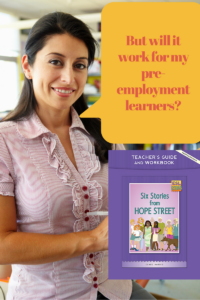
How do ESL Extras support pre-employment English? This is a question I expect to have to answer, with the new AMEP contract coming soon – and of course it’s already an issue for anyone who teaches on the SEE program.
(For anyone outside Australia reading this, these are national government programs providing language and literacy training. The Adult Migrant English Program will soon have a new business model, and be providing both ‘social’ and ‘pre-employment’ English, and the Skills for Education and Employment program, for job-seekers, already has an employment focus.)
Pre-employment English for beginners
My first thought is that for beginner learners, all English is ‘pre-employment’ – every instruction, every scrap of personal ID, every conversation… and that as teachers, we talk about jobs and workplaces as part of general language learning.
However, if you are looking for something more specific, here are some thoughts on how you might draw out workplace or work preparation elements in your discussions around the reading of the different ESL Extras books.
Work-specific books
My Job is the Best (Beginner A)
This set of eight ‘daily life’ stories is currently free to download, and involves very simple description of daily tasks involved in different jobs.
You could extend it by searching for and printing out pictures of other workers, then discussing and writing ‘their story’ of what they do every day, to practice use of simple present.
This is particularly good if you’re using the book in an evening or Saturday class, or with other learners who have beginner level English but are working. It may be tricky to get an actual photo of them at work, but you could search together online for photos that look something like the work they do. Then as a class, create new stories together.
If learners are more advanced beginners, they could write a past tense account of a typical day at work in their country (bearing in mind the limitations of war zones and refugee camps).
Workplace English puzzle book (Post-beginner to Intermediate) doesn’t have an official title yet, but will have a specific pre-employment English and Work Words focus. Coming soon. Watch this space!
‘Workplace setting’ books
Can You Keep a Secret? (Elementary/Post-beginner)
George’s problems begin when he is asked to do some extra study, so that he can apply for a promotion at work. This is interwoven with events at home, but still invites discussion on:
- Getting on well with your ‘team’ at work – value of teamwork, way in which teammates can become friends as well
- Starter jobs vs longer term goals
- Jobs with promotional pathways – team leader, supervisor etc
- The value of further training or study – or training as a job requirement
- Confidentiality as a workplace requirement
- Relationship with the boss – appears informal, with use of first names, but the boss is still the boss
- Issue of speaking up – being willing to speak in front of others in English
- Safety at work – an important job to be a safety officer
The Coat (Pre-intermediate)
Anni has moved to Melbourne with a plan to set up her small business. Meanwhile she’s working for a friend (she used to be a cleaner). Again, personal issues are interwoven with business challenges. Invites discussion on:
- Changing jobs, moving interstate for a job
- Long and short term job goals
- Entry level jobs, job pathways
- Working for a friend – good or bad? How many people get jobs through friends, rather than through formal applications?
- Working doing translations or interpreting – qualifications needed
- Setting up a small business in Australia – rules and regulations, tax issues
- Extra need for local council permissions for food production, varies in different areas
- Success rates for small business, issues with borrowing money, value to the economy of migrant businesses
- Who can offer help and advice? (Research the local small business support website?)
- Are there any special programs in your area for migrants or humanitarian entrants wanting to start up a small business? What do they offer? Advice? Grants?
Workplace discussion books
Welcome to Hope Street (Prelim)
- We live in Hope Street: What jobs do you think these people do? Are they working? Retired? Studying
- Cassie: At the op shop: paid staff and volunteers. Why do people volunteer?
- Tom: Where do you buy fruit? From a farmer’s market? Supermarket? Who works there? What different jobs do they have?
- John and Marissa: Are they retired? Unemployed? What do people do if they’re not working?
- Grace: Getting to work in bad weather – how would you get to work? Imagine a job 20 km away. Can you look on the public transport site to see how long it would take?
- Vic: The importance of PID and date of birth, being able to give these details quickly, possibly NOT putting on a CV for some jobs.
- Natasha: As for Story 3, but focus on supermarkets, jobs like shelf stacking, cashier work, supervisors – casual vs full time work.
- Rosa and her grandchildren: The value of unpaid work – parents, grandparents, volunteers, family carers.
Maybe Next Year (Beginner A)
- Marcy: Is Marcy working? (We don’t know this yet.) What percentage of mums work? (ABS says 66%)
- Vic: What shifts do Marcy and Vic work? What does that do to family life? Is life easy for them? What do you think about shift work?
- Tom and Aunty Kate: What do you think about working away, in another country? What about working in another city, or on a mine site or farm? Could you do this? Do you know anyone who does this?
- Poppy and Holly: Miss Brown is the girls’ teacher. What do you call your teacher? What does your teacher call his/her boss? Why do we LOVE first names (for adults) in Australia
- Rosa: Rosa’s help supports the family – how would they manage without her? How do other families manage, if both parents work? Rosa is 66. Do you think she’s getting a pension? How much is that? Is it enough for her to live alone?
- Bill: Bill is 71 and he’s retired, we guess – do you know people in their 70s who are still working? What is the Australian pension age now? What will it be soon? Why do we pay ‘super’?
- Kate: What jobs relate to holidays? (Travel agent, pilot, flight attendant, hotel staff…) Are there many tourists where you live? Which jobs might want you to help tourists? (barista, sales assistant, police officer, bus driver…)
- Marcy and Vic: Job names and duties related to all the stories: who sells soap, works at a hotel desk, cleans hotel rooms… but also who works at the pool, cuts hair, is the head of a school, looks after sick animals, fixes motorbikes
Six Stories from Hope Street (Beginner B)
- Where are my keys? and 3. No time for coffee! both explore the issue of the Australian demand for workers to be on time – or to have a really good excuse. What’s a good excuse? What isn’t? How can you let your boss know if you’re going to be late? A warning – what’s the fine for texting while you’re driving?
Both stories also look at ways to travel to work. How would you travel to a job? Can you use a website journey planner? Would you take a job in (far-off suburb)? - The Mastercook: What kind of training will Alex have to do if he really wants to be a chef? How long will it take? Where can he do it? What age will he have to be? Is it a good job? What other hospitality jobs do you know?
- No time for coffee! (see #1). Also office work – what qualifications and skills do you need? Who else works in the city centre?
- Bad dog: Police as friendly, police service as a career that might be valuable to the community, other police support jobs. Who do you know from the migrant community that works for the police? What are other emergency service jobs? Is it easy to get these jobs in Australia?
- A snake in the garden? Dad is working ‘up north’ – what kind of job might that be? What jobs involve ‘working away’ or ‘FIFO’? What’s it like to have to move to get a job? How do you make friends? (Also, jobs related to gardens – gardener, landscaping, groundsperson, nursery worker, and levels of training expected.)
- John Smith: Issues of sun protection for working outside, skin cancer in Australia. Staff at a medical centre: receptionist, GP, nurse, maybe physio. Issue of personal ID, need to give full name and date of birth to avoid mix-ups. Common names in your country. Do you know anyone with ‘your name’?
The Garage Sale (Beginner C)
Ben and Tori have ‘too much stuff’ and no room for a visitor, so Tori’s nephew Luke offers to help them have a garage sale…and things don’t go exactly as planned.
- Chapter 1: Lee (Ben’s sister) lives in Canberra – what kind of people work in Canberra? (Politicians, public servants – but also other service industries). How do you get a government job?
Simon (Ben’s son) lives in New York. What kind of job do you think he does? (Business, IT, finance, big company?) Is it easy to get a green card? - Chapter 2: Luke is 20 and a student. How do young people who are studying, like Luke, make money? (Fast food, pizza delivery, supermarket stacking, cleaning, coffee shops) Do they see this as a short or a long-term goal?
- Chapter 3: How do people make money by selling things? (eBay, Gumtree, local paper, car park sale, garage sale, making food to sell…) What kinds of rules are there for this? (Food sales may need kitchen inspection, local council may have rules about signs…)
What counts as ‘hobby’ income vs ‘business’ income to the Tax Office, or to Centrelink? (You may not have all the answers, but can raise awareness of the data matching that may take place with sites like eBay.) - Chapter 4: If you work in a shop, there is a float. If you’re selling things, you need to have change. Are you good at giving change? Do you need a calculator? Do shop assistants need to be able to do sums? (No, but they need to be able to estimate, so they can immediately see that $1024 is not the right amount for a grocery bill.)
- Chapter 5: Ben locks the front door. Security issues when working from home (or anywhere, but particularly if people are entering your house, or you are entering theirs). How do you keep your things safe at work?
Luke makes a mistake. What do you do if you make a mistake at work? Hide it or tell someone? What can you say? - Chapter 6: The table and chairs are $100 ONO. Costs and bargaining – which shop assistants or owners can give a discount, or a discount for cash? Who can never do this? Who has to ask the manager? What about in your country?
Workplace vocabulary
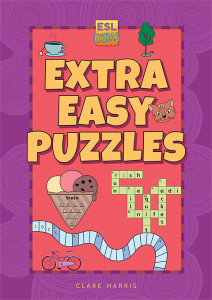 Extra Easy Puzzles (Beginner C)
Extra Easy Puzzles (Beginner C)
Puzzle #13, Who am I? covers names of jobs. The other puzzles cover general language: days and months, numbers, opposites, past tense, abbreviations, question words – valuable for work, but not work-specific.
(The new Workplace English puzzles book will cover workplace and pre-employment English, at a slightly higher level.)
That’s it for now! I’ll post separately on my clareharris.com blog about other workplace-focussed readers and workbooks (especially at beginner level, where authentic material is too hard to use).
Do get in touch if there’s anything you think I’ve left out – and I hope this is useful, whichever program you’re teaching in…

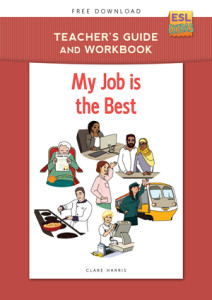
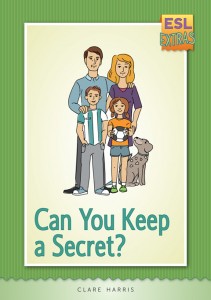
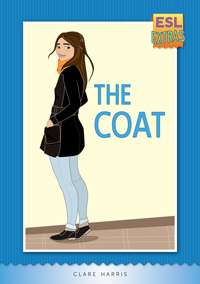
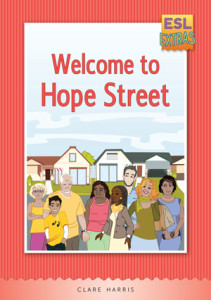
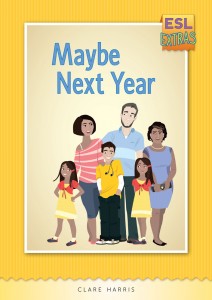
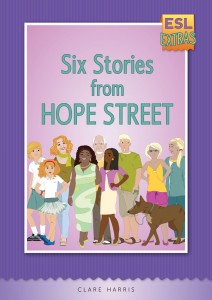

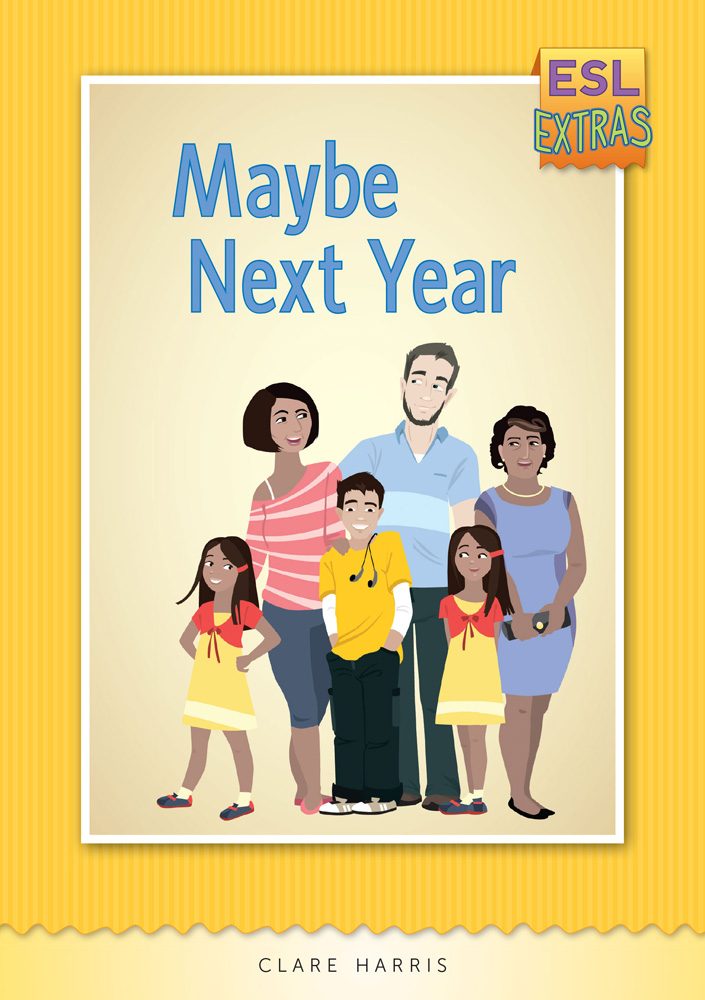
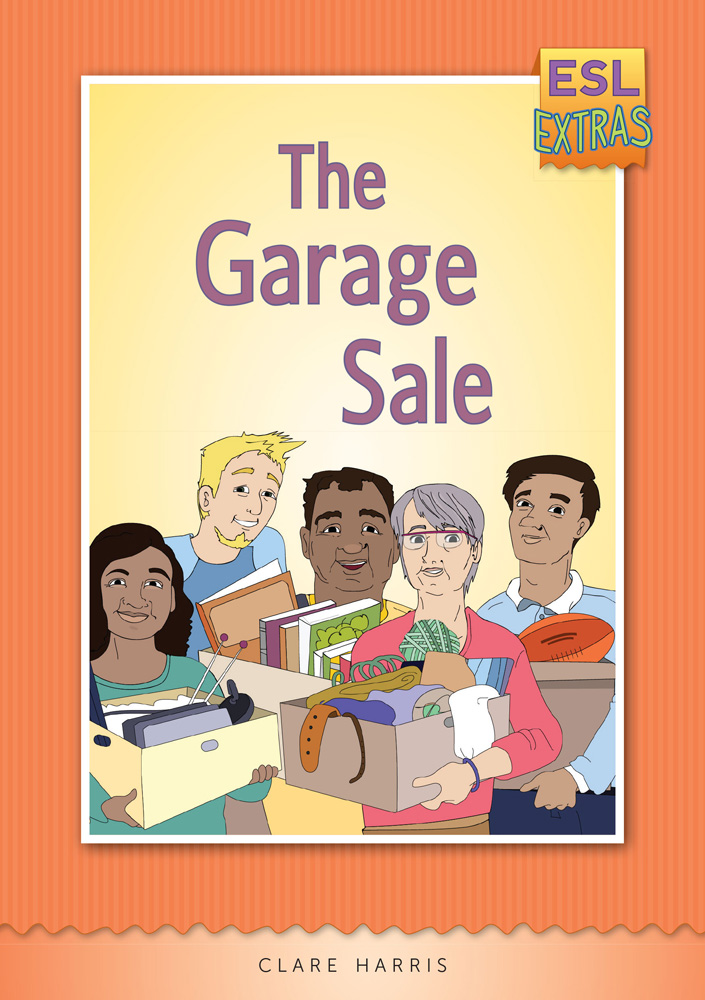
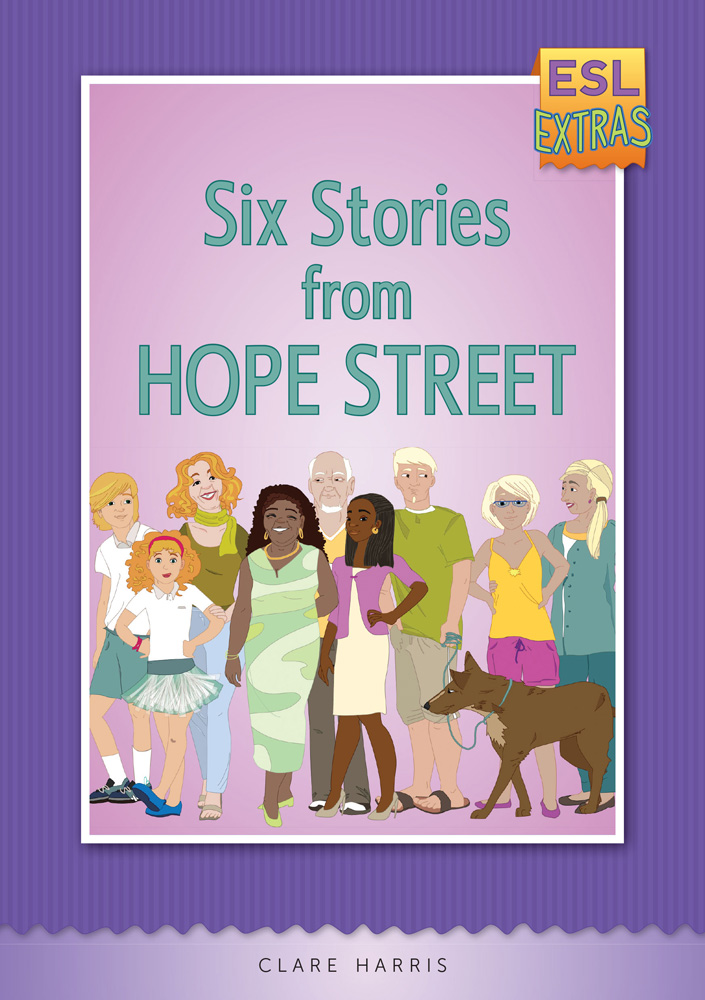
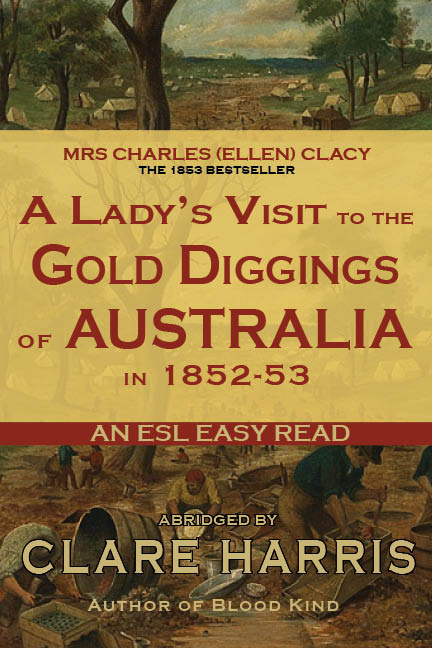

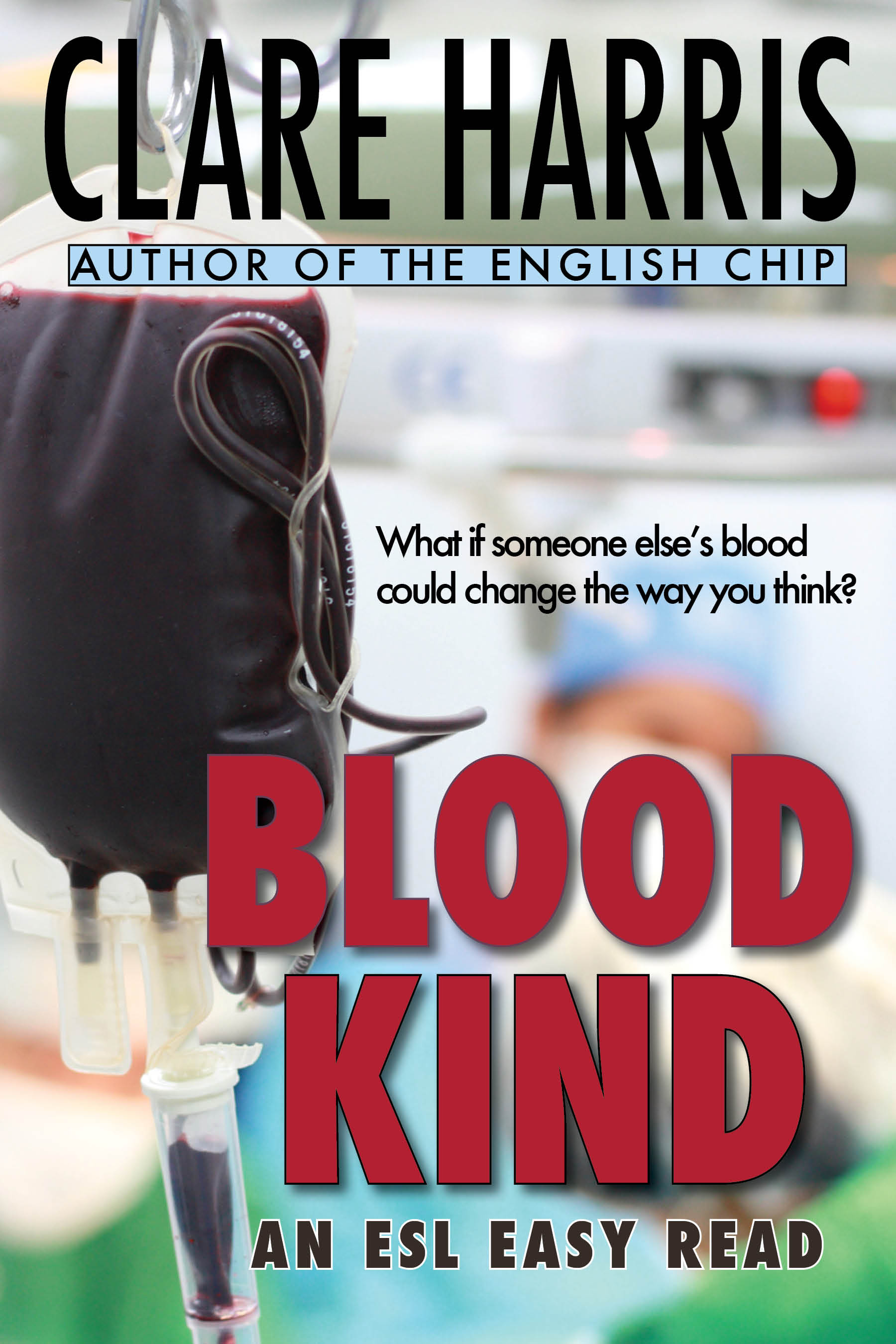

3 responses to ESL Extras and pre-employment English
Comments are closed.